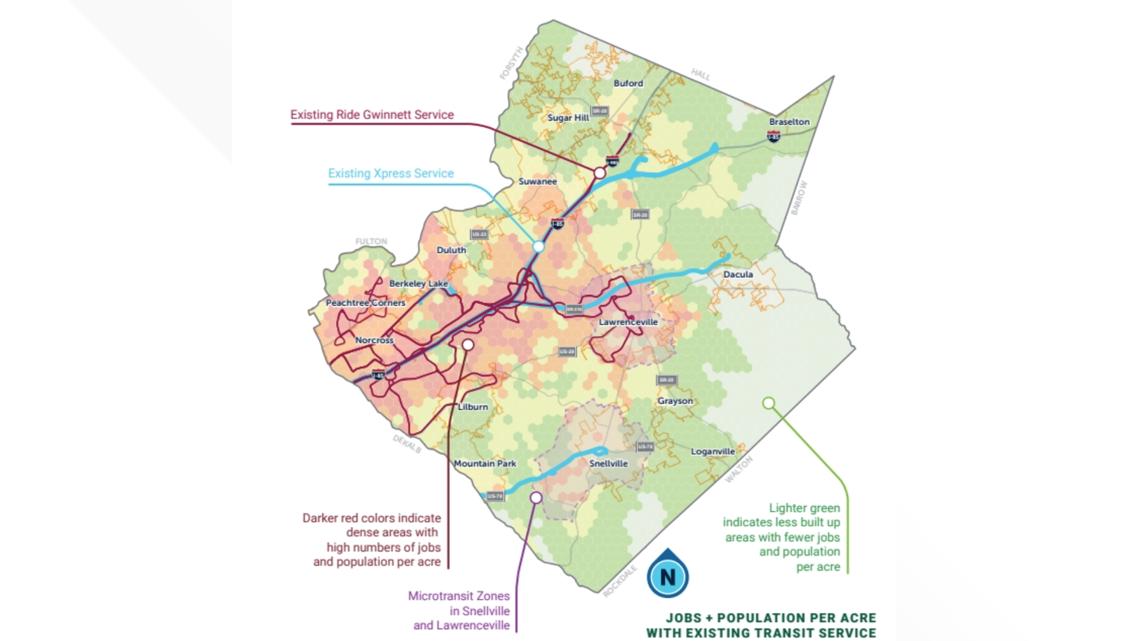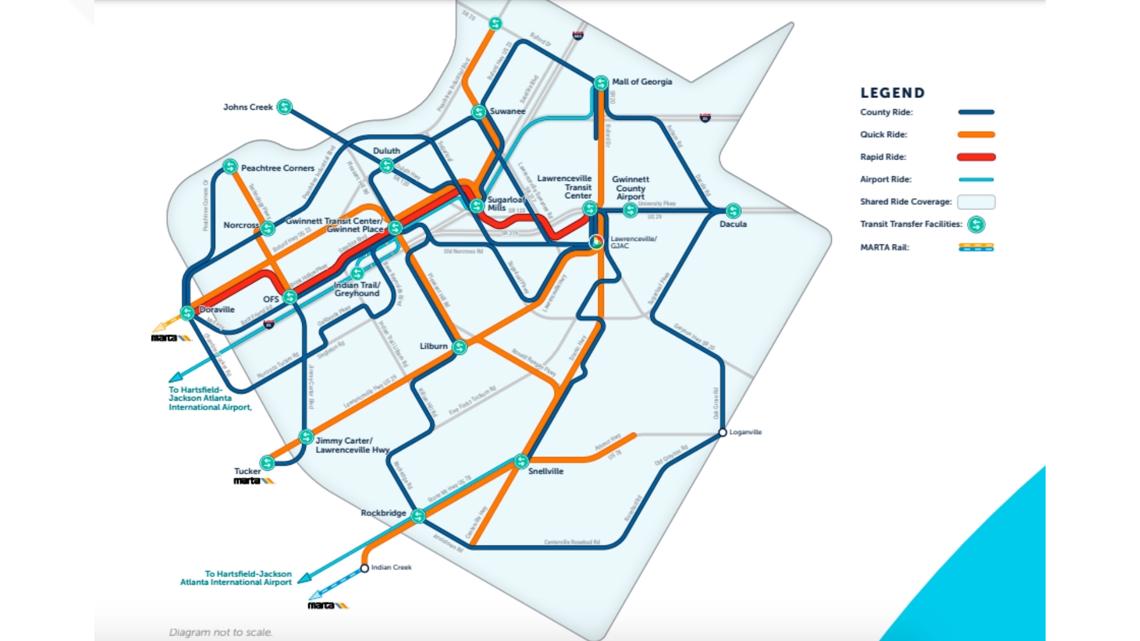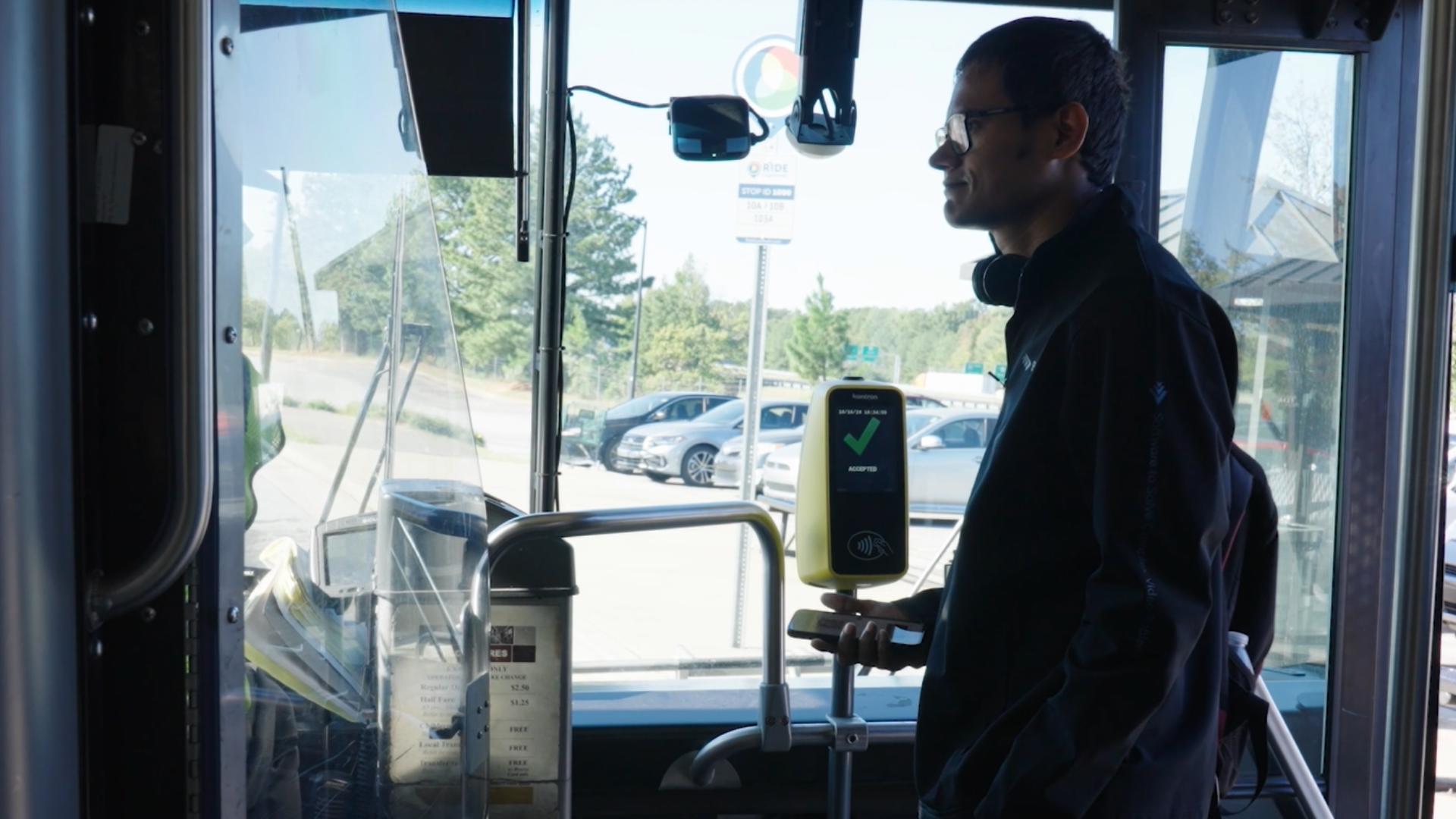GWINNETT COUNTY, Ga. — Gwinnett County voters have a transit tax referendum on the ballot. The transit SPLOST referendum is a 1% sales tax that, if passed, would be in place for the next 30 years.
According to county data, Gwinnett's public transit has been used more than 1 million times so far this year, proving to be a crucial service for hundreds of thousands of riders.
"As an immigrant, it's a really great opportunity to have public transportation," Musfiq Rahman said.
Rahman emigrated from Bangladesh in May with his wife and 10-year-old daughter.
"Unfortunately, I live in Suwanee and there is no bus route," he said while riding Route 10A toward the Doraville MARTA station.
Rahman rides the bus at least three times a week and explained that he often has to find a way to Lawrenceville to board public transit.


Currently, there are 15 bus routes in Gwinnett County as listed on its transportation website. Most of the routes are on the west side of the county, which provides about 140-square-miles of service, less than half of the county's size.
RELATED: Gwinnett voter's guide for 2024 Presidential Election: What's on the ballot, where to vote and more


What is a Transit SPLOST for Gwinnett County?
A transit referendum is a countywide vote on whether to fund transit projects through a dedicated Transit Special Purpose Local Option Sales Tax, known as a Transit SPLOST. This year, the SPLOST referendum proposal aims to expand Gwinnett County's public transit system, Ride Gwinnett.
"It covers all 437-square-miles of Gwinnett County," Gwinnett Transit Director China Thomas said.
If the measure passes, the county says it would generate $12 billion over the next 30 years to fund projects like new transfer stations in growing areas, a direct route to the airport, bathrooms at certain bus stops, and new stops and routes in growing parts of the county. The full proposal, which includes 75 transit projects, can beviewed here.


Why previous proposals were struck down
This isn't the first time voters have been asked to weigh in on a transit proposal. Since the 1970s, this is the fifth time a transit tax proposal has been brought to a vote in the county.
Proposals in the past were shot down as some voters simply didn't want to pay an extra tax, according to the county.
"If someone came to Gwinnett County and bought a cup of coffee for $5, they would be charged an additional 5 cents," Thomas explained with the current referendum on the ballot.
Other residents rejected proposals that included MARTA rail or felt the previously proposed routes didn't serve them.
"As a resident in the South Gwinnett area, we were almost left out completely from the transit referendum plan in 2020 and even in 2018," Ian Samuels said.
Samuels attended a public transit townhall to learn more about the referendum and help advocate for the current proposal. He said this proposal is different as it includes all parts of Gwinnett.
"I mean, I just started voting in elections in 2018. This is the third referendum I'm voting it," he said. "But I think this has to be done. Gwinnett County has over a million people now. I mean, we have as many people almost as Fulton County and other major cities in the U.S."
Samuels is right.
Gwinnett County now has around 1.2 million residents, U.S. Census data shows. That's why some people say the current referendum will not fix traffic congestion or transportation issues.
"If we're going to have 100 buses on the highways and the cars, we're going to have more crowded transportation," Maha Rayan said at the townhall. "The type of transportation that they're going to use on the project is not effective."
Rayan shared that she plans on voting no to the referendum. Rayan, who has been vocal about her opposition at county commission meetings and educational townhalls, says that Gwinnett County needs to invest in its own rail system.
"Imagine how long the bus will take to take you to the airport," Rayan said. "So the railway is more efficient."
Thomas said this proposal was crafted with careful and extensive community input.
"The other plans, they did include MARTA because they did include rail. Voters? That is not what they wanted," she said.
That's why this year's proposal is specifically focused on buses, from shared rides known as "microtransit" to creating a designated airport route.
What you'll see on your ballot
Gwinnett County voters will see the SPLOST referendum as one of the last questions on their General Election ballot under the special election section.
It will read:
Gwinnett County Transit SPLOST Referendum
Shall a special one percent sales and use tax be imposed in the special district consisting of Gwinnett County for a period of time not to exceed thirty (30) years and for the raising of funds for transit projects?
A yes vote means you agree to the 1% sales tax for 30 years.
A no vote means you're striking the proposal down.
11Alive is committed to helping you vote confidently by understanding the 2024 election issues that impact you. Our goal is to educate and inform our audience about the election process. We plan to do that by verifying facts, providing context, and explaining the system. Get more election resources here at /vote.

